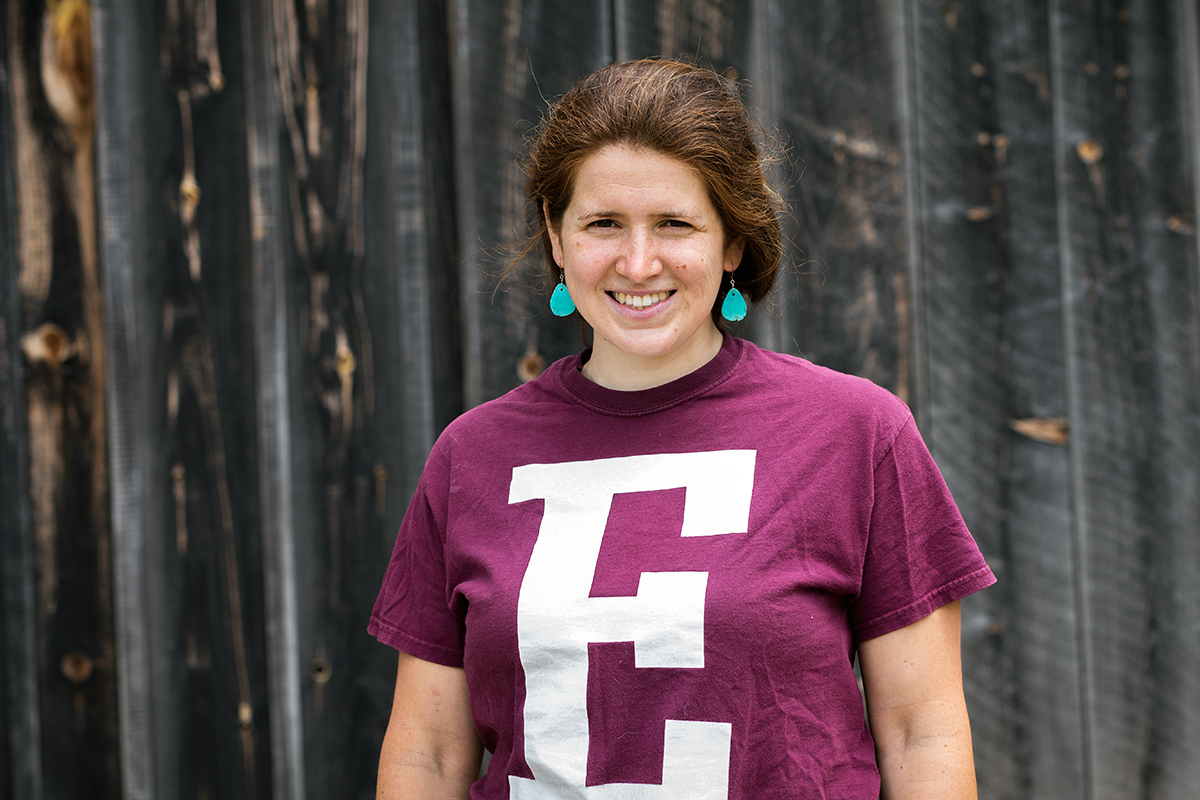Forrest Barker

Forrest Barker ’13 grew up playing hide-and-seek in the fields and woods of her family’s 101-year-old farm in Stratham, New Hampshire, little more than 5 miles from the Academy Building. Those powerful childhood memories, and her family’s dedication to sustainable farming, drew her back to Barker’s Farm in 2017, after she graduated from Cornell University with a bachelor’s degree in agricultural sciences.
At 23, she’s the fifth generation of Barkers to work the farm, which she manages alongside her mother, Edie. “I’ve known since high school that this is what I wanted to do,” she says.
Barker’s connections to the place run deep. Her great-great-grandparents established the farm, which now encompasses 90 acres, in 1917. But it was her father, Gordon, who grew up there, who inspired her love of the land. Together with Edie, Gordon Barker expanded the farm’s operations in the early 1980s, building a roadside farm stand and selling produce at farmers markets on the New Hampshire seacoast.
A land conservationist and avid cyclist who was very involved in the Stratham community, Gordon was also a dedicated father. “He always made time for me,” Barker says. “We’d go on walks in the woods and he’d show me streams he’d found as a kid. We raced each other up a trail in the woods or he’d follow me as I picked strawberries. He was always showing me something.”
Recognizing his daughter’s academic talent, Gordon encouraged her to apply to Exeter. Then, just two weeks before Forrest was to start her prep year at the Academy, Gordon Barker died suddenly after suffering a heart attack at the farm. He was only 51 years old.
Barker’s transition to Exeter was initially difficult. “I was already a quiet person, but it took me a while to open up,” she says. “I did a lot of listening.” Eventually, she discovered subjects such as astronomy and ornithology that inspired new passions, like bird-watching. She also rowed crew all four years at Exeter, a sport her father had enjoyed as a University of New Hampshire student. Her horizon continued to expand at Cornell, where she learned more about the theories behind sustainable farming practices used on the farm, such as crop rotation and pest control. A summer spent at an organic farm in Oregon generated new farming ideas, from how to trellis tomatoes differently to setting up a visitor friendly booth at farmers markets. “It was great to see a different perspective,” she says. “There were plenty of ideas I could take and try at home.”
Barker’s Farm sits along a busy road, its greenhouse and farm stand abutting a small parking lot that’s crowded with visitors on summer and fall days. Fields unfurl on the hill behind the greenhouse. The Barkers grow green beans, tomatoes, peppers, lettuce and a variety of other salad greens, sweet corn, potatoes, squash, pumpkins and more. While the farm isn’t organic, the family employs sustainable practices, rotating crops in the fields to enrich the soil and planting cover crops in the off-season to preserve the soil’s nutrients and keep it from washing away in rain and snow. “We’ve been able to farm here for more than 100 years because we take care of the soil,” Barker says.
She has no immediate plans for that to change. “My dad passed on his love of the farm to me,” Barker says. “I love the community here and the people who work here, and I love that we’re able to provide quality, fresh vegetables and fruit to customers. The dream is definitely to stay here.”
— Debbie Kane
Editor’s note: This article first appeared in the summer 2018 issue of The Exeter Bulletin.